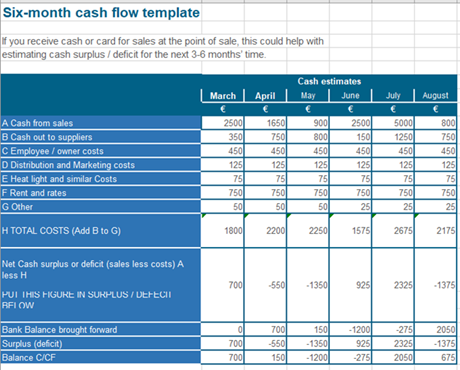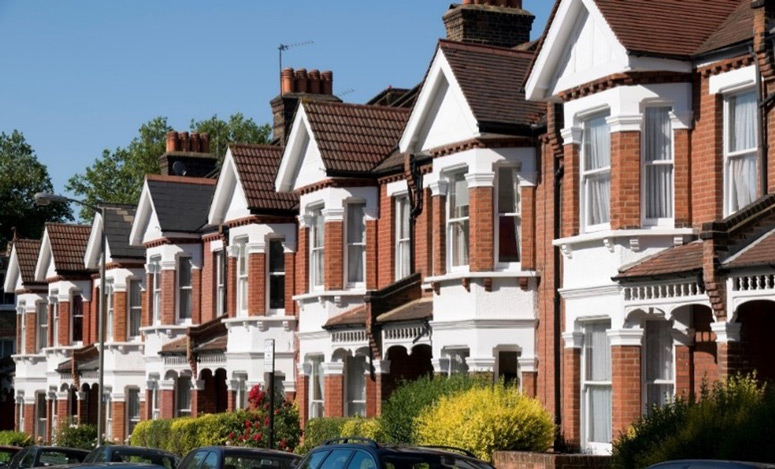General Business Help & Support News 11.10.2021
Below is our weekly roundup of changes to government support information generally and for businesses, employers and the self-employed.
Fuel pump crisis and the looming “challenging” winter
With panic buying at the pumps, the shortage of HGV drivers, and a looming winter energy crisis many of us are running our businesses in an ever increasing level of uncertainty.

If you are concerned about the future of your business then take some time to reflect on where you are and what could happen in the next few months. It is now vitally important for all businesses to plan ahead for a range of scenarios. Cash flow and business planning in these uncertain times may appear difficult but there are some practical steps you can take to minimise potential disruption to your business.
- Review your Budgets and set realistic and achievable targets for the remainder of 2021.
- Get your employees involved in a discussion of likely trading conditions and get their input on reducing costs and maintaining revenues.
- Review and flow chart the main processes in your business (e.g. Sales processing, order fulfilment, shipping etc.) and challenge the need for each step.
- Put extra effort into making sure your relationships with your customers are solid.
- Review your list of products and services and eliminate those that are unprofitable or not core products/services.
- Pull everyone together and explain the business strategy and get their buy-in.

Please talk to us about cash flow planning for the next few months, we can help with a template so you can do this yourself or work together to produce estimates for a variety of scenarios.
House price review - Office for National Statistics (ONS) latest survey released
The ONS have released their latest analysis identifying the types of areas that are seeing the fastest house price growth during the coronavirus pandemic, and who could be at risk of being priced out.
Rising house prices and private rents mean that some workers are at risk of being priced out of living in rural and coastal areas, contributing to skill shortages in the tourism and hospitality industries that their local economies rely on. Young and low paid workers in tourist hotspots are increasingly facing the prospect of being unable to afford to live there.

Despite falling from a record high in June, the average UK house price (£256,000) increased by 8.0% in July 2021 compared with the previous year.
House prices were rising at three times the national rate in some rural and coastal areas in July, such as Conwy in North Wales (25.0%), North Devon (22.5%) and Richmondshire in the Yorkshire Dales (21.4%), continuing a trend seen during the coronavirus (COVID-19) pandemic.
Meanwhile, the seven areas that recorded house price falls in July were all London boroughs.
House prices are increasing partly because of temporary changes to taxes paid on property purchases (including Stamp Duty in England and Northern Ireland), but they also reflect a shift in consumer preferences with growth being driven by rural and coastal areas.
Prospective home buyers are seeking more space, with prices for detached houses (9.0% growth in July) consistently rising faster than terraced houses (7.7%) or flats (6.1%).
As a result, people living in rural and coastal areas – particularly the young and those on lower incomes – are at risk of being priced out of the housing market.
This could be contributing to hospitality businesses being unable to fill vacancies, with the industry being predominant in tourist areas and containing a high proportion of young and low paid workers.
See: Coronavirus and house price growth - GOV.UK (www.gov.uk)
Deadline for Covid-19 sick pay
The UK Government has updated its guidance for claims made under the Coronavirus Statutory Sick Pay Rebate Scheme. Employers can only claim back statutory sick pay paid to employees due to Covid-19 who were off work on or before 30 September 2021.
The Coronavirus Statutory Sick Pay Rebate Scheme will repay employers the Statutory Sick Pay paid to current or former employees. You must submit or amend claims on or before 31 December 2021.
See: Check if you can claim back Statutory Sick Pay paid to employees due to coronavirus (COVID-19) - GOV.UK (www.gov.uk)
Government seeks views on contingency proposals for mandatory Covid-19 certification
A policy proposal has been published for mandatory vaccine certification as a contingency measure under the government's Autumn and Winter Plan.
The government states it remains confident 'Plan A' will prevent the NHS from facing unsustainable pressure and certification will not be required but mandatory vaccine-only certification could potentially be introduced in certain settings as part of 'Plan B'.
The proposal for mandatory COVID certification in a Plan B scenario fulfils the commitment, set out in the Autumn and Winter Plan, to provide organisations with more detail about the proposed certification regime that would be introduced as part of Plan B.
The government invites feedback on these proposals. A call for evidence runs until 11 October.
See: Government seeks views on contingency proposals for certification - GOV.UK (www.gov.uk)
Red, amber, green lists: check the rules for travel to England from abroad change today
From 4 October 2021, the rules for international travel to England will change from the red, amber, green traffic light system to a single red list of countries and simplified travel measures for arrivals from the rest of the world. The rules for travel from countries and territories not on the red list will depend on your vaccination status.
From 4 October, you will qualify as fully vaccinated if you are vaccinated either:
- under an approved vaccination programme in the UK, Europe, USA or UK vaccine programme overseas
- with a full course of the Oxford/AstraZeneca, Pfizer BioNTech, Moderna or Janssen vaccines from a relevant public health body in Australia, Antigua and Barbuda, Barbados, Bahrain, Brunei, Canada, Dominica, Israel, Japan, Kuwait, Malaysia, New Zealand, Qatar, Saudi Arabia, Singapore, South Korea, Taiwan or the United Arab Emirates (UAE)
Formulations of the 4 listed vaccines, such as AstraZeneca Covishield, AstraZeneca Vaxzevria and Moderna Takeda, qualify as approved vaccines. You must have had a complete course of an approved vaccine at least 14 days before you arrive in England. Where 2 doses of a vaccine are required for a full course, you will be able to:
- mix 2 different types of vaccine, for example Oxford/AstraZeneca and Moderna
- have the 2 vaccinations under 2 different approved programmes, for example Australia and Japan, UK and USA, EU and Canada
See: Red, amber, green lists: check the rules for travel to England from abroad - GOV.UK (www.gov.uk)
Private providers of coronavirus (COVID-19) testing
The UK government has updated the lists of and information about private providers who have self-declared that they meet the government's minimum standards for the type of commercial COVID-19 testing service they offer.
See: Private providers of coronavirus (COVID-19) testing - GOV.UK (www.gov.uk)
Local authority powers to impose restrictions: Health Protection (Coronavirus, Restrictions) (England) (No 3) Regulations 2020
The regulations grant powers to local authorities to make directions which respond to a serious and imminent threat to public health. Any direction must be necessary and proportionate in order to manage the transmission of coronavirus in the local authority's area. The regulations contain powers for local authorities to give directions which:
- restrict access to, or close, individual premises
- prohibit or restrict certain events (or types of event)
- restrict access to, or close, public outdoor places (or types of outdoor public places)
This guidance seeks to provide clarity to local authorities on how to exercise the powers in the regulations and to support those impacted by any direction made under them.
See: Local authority powers to impose restrictions: Health Protection (Coronavirus, Restrictions) (England) (No 3) Regulations 2020 - GOV.UK (www.gov.uk)